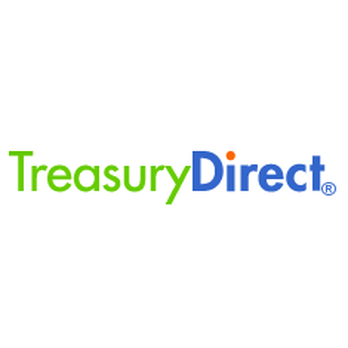
The income tax benefit of investing dividend-yielding fund mutual funds is one of its benefits. This money may be taxed. Therefore, investors need to learn about the income tax rates for dividends from mutual-funds before investing. Below is important information regarding taxes on mutual fund dividends. This article will help you calculate how much tax you are allowed to deduct from your dividend. You can also consider Systematic Withdrawal Plans to take advantage of tax benefits and create wealth.
Investing in dividend-yielding mutual funds
You should consider investing in dividend-yielding mutual fund funds for several reasons. These funds invest in shares that are well-known and have high cash flow. This allows them to produce better returns over time. Another advantage is that they tend to fluctuate less in the market than other types of equity funds. These funds are perfect for beginners who have low risk appetites.

When choosing a dividend mutual fund, you should consider its expense ratio and the amount of risk involved. These funds often have low expense rates, which is a significant benefit for those with limited budgets. These funds are more likely to yield dividends than other investments. These funds are great for investors who want protection from market fluctuations and high returns. However, if you have high risk tolerance, investing in dividend-yielding mutual money may be a good option.
Taxes on dividends from mutual funds
The tax rate you pay on the dividends of mutual funds varies greatly. The type of distribution you receive will affect the tax rate. Ordinary dividends are taxed at ordinary income rates. Capital gains, on other hand, will be subject to long-term capital growth rates. Your mutual fund may distribute an exempt interest dividend. The tax rate for this type of distribution is lower. Here are some guidelines to help guide you in deciding what to do when your mutual funds dividends are distributed.
In general, most dividends from mutual funds are treated as ordinary income, but there are special rules for investors who qualify to receive lower capital gains rates. Qualified dividends can be received at a rate of 23.8% if you have held stock in the fund for more than five years. If you're in the lower tax bracket, you might not be subject to any tax. You should consider how much tax you can afford if you have a large amount of mutual fund investments.
Dividends from mutual fund are subject to income tax
Whenever you receive a dividend from a mutual fund, it is taxable income. It is subject to the income tax slab rate for FY 2020-21. Tax benefits and deductions vary for each assessee. Dividend interest can be deducted. You cannot deduct more than 20% of your dividend income. Additionally, you can't deduct any other expenses from dividend income. Understanding the tax consequences is essential before you withdraw your dividend.

Dividends from mutual fund investments attract a tax rate between 1% and 3%. The tax rate will be lower if you earn less than a certain income. This tax is applicable to equity mutual funds as well as non-equity mutual fund investments. In general, dividends received from mutual funds are tax-free in the hands of investors. TDS (Total deductions and discretionary sales tax) will be charged on dividend income for equity mutual funds.
FAQ
How are securities traded
Stock market: Investors buy shares of companies to make money. In order to raise capital, companies will issue shares. Investors then purchase them. When investors decide to reap the benefits of owning company assets, they sell the shares back to them.
Supply and demand determine the price stocks trade on open markets. When there are fewer buyers than sellers, the price goes up; when there are more buyers than sellers, the prices go down.
You can trade stocks in one of two ways.
-
Directly from the company
-
Through a broker
What is security on the stock market?
Security can be described as an asset that generates income. The most common type of security is shares in companies.
Different types of securities can be issued by a company, including bonds, preferred stock, and common stock.
The earnings per shared (EPS) as well dividends paid determine the value of the share.
If you purchase shares, you become a shareholder in the business. You also have a right to future profits. If the company pays a payout, you get money from them.
You can sell shares at any moment.
Who can trade in the stock market?
Everyone. All people are not equal in this universe. Some people are more skilled and knowledgeable than others. So they should be rewarded.
There are many factors that determine whether someone succeeds, or fails, in trading stocks. You won't be able make any decisions based upon financial reports if you don’t know how to read them.
Learn how to read these reports. You must understand what each number represents. You should be able understand and interpret each number correctly.
This will allow you to identify trends and patterns in data. This will allow you to decide when to sell or buy shares.
If you're lucky enough you might be able make a living doing this.
How does the stock exchange work?
You are purchasing ownership rights to a portion of the company when you purchase a share of stock. A shareholder has certain rights over the company. A shareholder can vote on major decisions and policies. The company can be sued for damages. He/she may also sue for breach of contract.
A company cannot issue any more shares than its total assets, minus liabilities. This is called capital adequacy.
A company with a high capital sufficiency ratio is considered to be safe. Companies with low ratios are risky investments.
What is the role of the Securities and Exchange Commission?
SEC regulates securities brokers, investment companies and securities exchanges. It enforces federal securities regulations.
What Is a Stock Exchange?
Companies can sell shares on a stock exchange. This allows investors and others to buy shares in the company. The market sets the price of the share. The market usually determines the price of the share based on what people will pay for it.
Companies can also raise capital from investors through the stock exchange. Companies can get money from investors to grow. They buy shares in the company. Companies use their money for expansion and funding of their projects.
Stock exchanges can offer many types of shares. Some shares are known as ordinary shares. These are the most popular type of shares. Ordinary shares are traded in the open stock market. The prices of shares are determined by demand and supply.
Preferred shares and debt security are two other types of shares. When dividends are paid out, preferred shares have priority above other shares. Debt securities are bonds issued by the company which must be repaid.
How can I find a great investment company?
Look for one that charges competitive fees, offers high-quality management and has a diverse portfolio. The type of security that is held in your account usually determines the fee. Some companies have no charges for holding cash. Others charge a flat fee each year, regardless how much you deposit. Others charge a percentage on your total assets.
Also, find out about their past performance records. Companies with poor performance records might not be right for you. Avoid low net asset value and volatile NAV companies.
Finally, it is important to review their investment philosophy. In order to get higher returns, an investment company must be willing to take more risks. If they are unwilling to do so, then they may not be able to meet your expectations.
What is the distinction between marketable and not-marketable securities
The differences between non-marketable and marketable securities include lower liquidity, trading volumes, higher transaction costs, and lower trading volume. Marketable securities are traded on exchanges, and have higher liquidity and trading volumes. You also get better price discovery since they trade all the time. However, there are some exceptions to the rule. For instance, mutual funds may not be traded on public markets because they are only accessible to institutional investors.
Non-marketable securities can be more risky that marketable securities. They typically have lower yields than marketable securities and require higher initial capital deposit. Marketable securities are generally safer and easier to deal with than non-marketable ones.
A bond issued by large corporations has a higher likelihood of being repaid than one issued by small businesses. Because the former has a stronger balance sheet than the latter, the chances of the latter being repaid are higher.
Because they are able to earn greater portfolio returns, investment firms prefer to hold marketable security.
Statistics
- For instance, an individual or entity that owns 100,000 shares of a company with one million outstanding shares would have a 10% ownership stake. (investopedia.com)
- Even if you find talent for trading stocks, allocating more than 10% of your portfolio to an individual stock can expose your savings to too much volatility. (nerdwallet.com)
- US resident who opens a new IBKR Pro individual or joint account receives a 0.25% rate reduction on margin loans. (nerdwallet.com)
- The S&P 500 has grown about 10.5% per year since its establishment in the 1920s. (investopedia.com)
External Links
How To
What are the best ways to invest in bonds?
A bond is an investment fund that you need to purchase. The interest rates are low, but they pay you back at regular intervals. You make money over time by this method.
There are many ways you can invest in bonds.
-
Directly purchasing individual bonds
-
Buy shares from a bond-fund fund
-
Investing via a broker/bank
-
Investing via a financial institution
-
Investing through a pension plan.
-
Invest directly through a stockbroker.
-
Investing through a mutual fund.
-
Investing through a unit-trust
-
Investing through a life insurance policy.
-
Investing with a private equity firm
-
Investing in an index-linked investment fund
-
Investing via a hedge fund